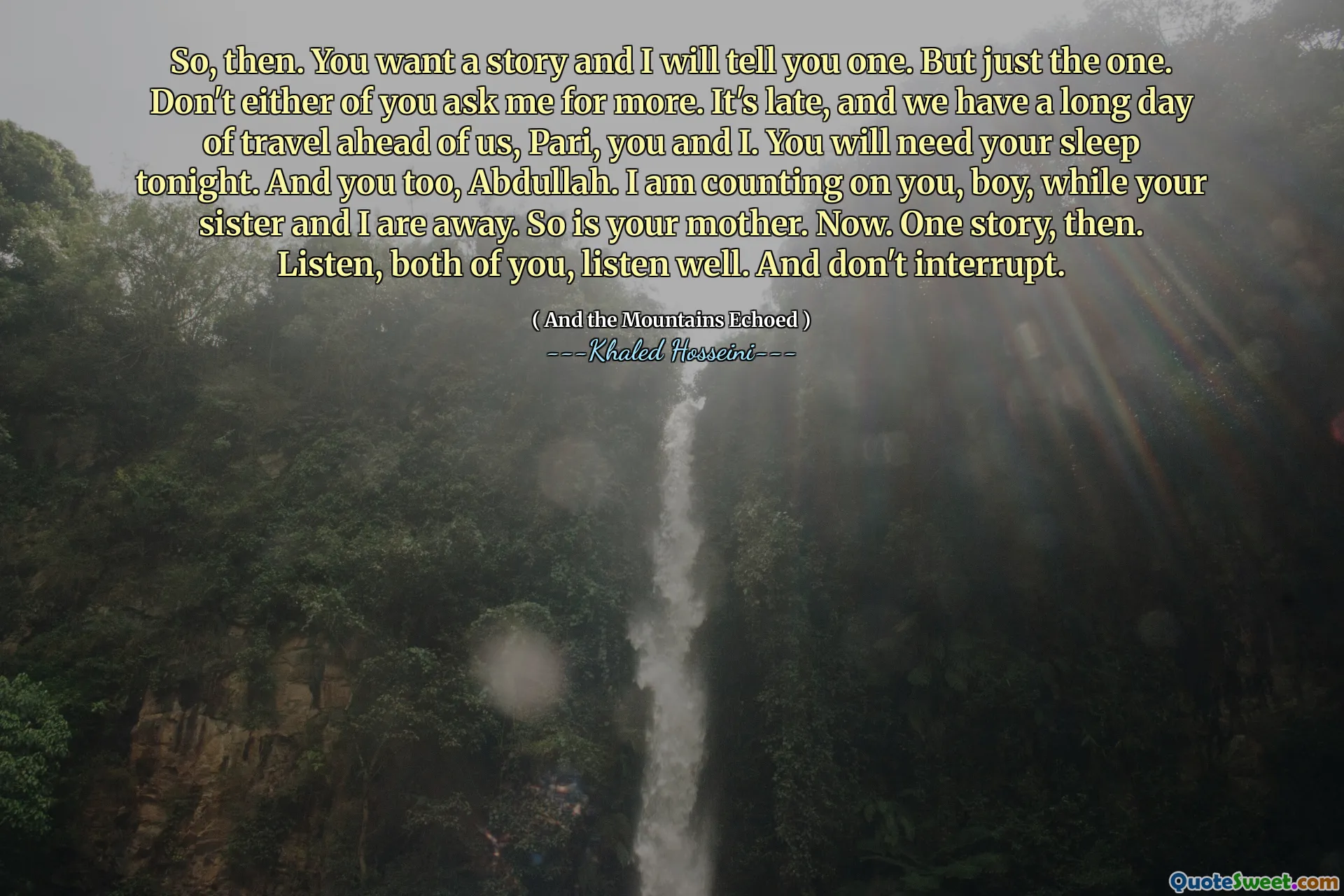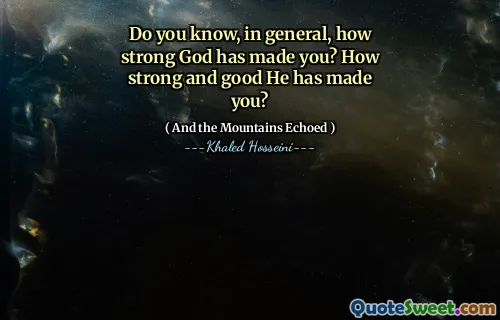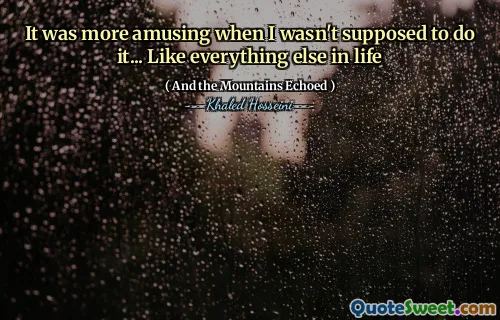
So, then. You want a story and I will tell you one. But just the one. Don't either of you ask me for more. It's late, and we have a long day of travel ahead of us, Pari, you and I. You will need your sleep tonight. And you too, Abdullah. I am counting on you, boy, while your sister and I are away. So is your mother. Now. One story, then. Listen, both of you, listen well. And don't interrupt.
This passage, marked by its gentle authority and tenderness, captures a moment of intimacy and responsibility amidst impending change. It reflects a subtle but profound dynamic between the storyteller and the listeners—Pari and Abdullah—potentially siblings or close companions about to embark on a journey that demands preparedness and rest. The insistence on 'just the one' story and the firm request not to be interrupted hint at the dignity of this moment, where the storyteller assumes a protective and guiding role. The narrative posture creates an emotional suspense; we sense that the story to be told carries weight, perhaps reassurance or memory, to anchor the children amidst uncertainty. The repetition of responsibility emphasizes themes central to Khaled Hosseini's work—family bonds, care, and the burden of safeguarding the vulnerable during difficult times. The line ‘I am counting on you’ underscores the maturity expected from Abdullah, reflecting on the delicate balance between childhood and premature responsibility often seen in Hosseini’s novels. Moreover, the promise of a single story acts as a symbol of stability—a gift of attention, love, and continuity in the face of change. This resonates deeply with how storytelling in many cultures serves as a means of passing wisdom and preserving identity within tumultuous circumstances. Overall, this moment is soaked with gentle affection, caution, and a quiet determination to protect and prepare those who depend on the storyteller, reinforcing themes of care and resilience that define much of ‘And the Mountains Echoed.’









